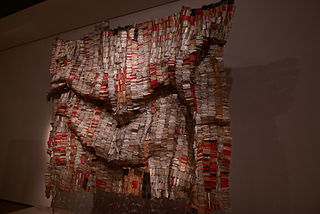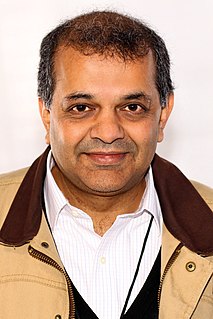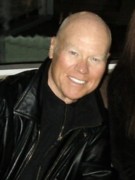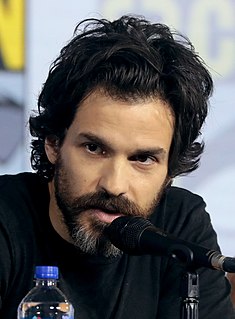A Quote by Haruki Murakami
You end up exhausted and spent, but later, in retrospect, you realize what it all was for. The parts fall into place, and you can see the whole picture and finally understand the role each individual part plays. The dawn comes, the sky grows light, and the colors and shapes of the roofs of houses, which you could only glimpse vaguely before, come into focus.
Related Quotes
But if you do know what is taught by plants and weather, you are in on the gossip and can feel truly at home. The sum of a field's forces [become] what we call very loosely the 'spirit of the place.' To know the spirit of a place is to realize that you are a part of a part and that the whole is made or parts, each of which in a whole. You start with the part you are whole in.
Consider a movie: it consists of thousands upon thousands of individual pictures, and each of them makes sense and carries a meaning, yet the meaning of the whole film cannot be seen before its last sequence is shown. However, we cannot understand the whole film without having first understood each of its components, each of the individual pictures. Isn't it the same with life? Doesn't the final meaning of life, too, reveal itself, it at all, only at its end, on the verge of death?
The reason why so many of my photographs in the book were taken in stairwells and corridors was that that was the only bit of spare space available and, in some cases, the only place where there was enough light to see anything. Even then, it was often so dark that I couldn't tell which gender my subject was (not that I particularly cared) and too dark, before the era of autofocus, to focus. I had to find a light (or carry a torch) and pre-focus.
There will be natural propriety in using an eastern light for bedrooms and libraries, a western light in winter for baths and winter apartments, and a northern light for picture galleries and other places in which a steady light is needed; for that quarter of the sky grows neither light nor dark with the course of the sun, but remains steady and unshifting all day long.
Real knowing comes up when we stand in the appropriate place. But usually we don’t. First we want to understand something according to individual knowledge, prejudice, customs and habits. This means we are standing up in our individual place, not the universal perspective. This egoistic behavior makes it very difficult to see the overall picture. But buddhas and ancestors recommend that we first stand up in the appropriate place. Just stand up, be present in the Universe itself.
Very great charm of shadow and light is to be found in the faces of those who sit in the doors of dark houses. The eye of the spectator sees that part of the face which is in shadow lost in the darkness of the house, and that part of the face which is lit draws its brilliancy from the splendour of the sky. From this intensification of light and shade the face gains greatly in relief and beauty by showing the subtlest shadows in the light part and the subtlest lights in the dark part.
The principle tragedy of my life is, like all tragedies, an irony of Destiny. I reject real life as if it were a condemnation; I reject dreams as if they were an ignoble liberation. [...]After the end of the stars uselessly whitened in the morning sky and the breeze became less cold in the barely orange tinged in the yellow of the light on the scattered low clouds, I, who hadn't slept, could finally, slowly raise my body, exhausted from nothing from the bed from which I had thought the universe.
Dawn's faint breath breathes with your mouth at the ends of empty streets. Gray light your eyes, sweet drops of dawn on dark hills. Your steps and breath like the wind of dawn smother houses. The city shudders, Stones exhale— you are life, an awakening. Star lost in the light of dawn, trill of the breeze, warmth, breath— the night is done. You are light and morning.





































